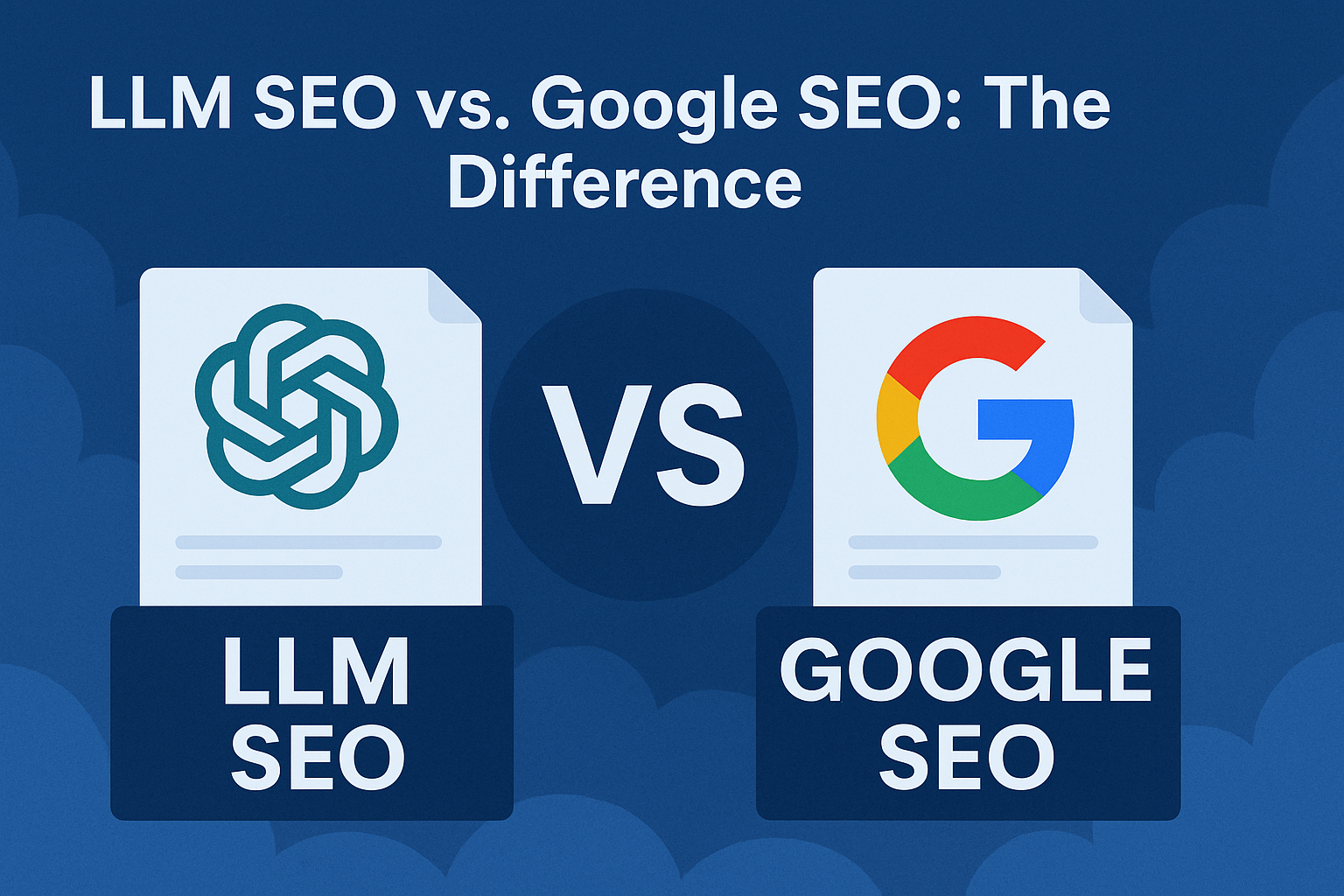LLM SEO vs. Google SEO: Key Differences for Modern Content Strategy

The rise of Large Language Models (LLMs) like ChatGPT is reshaping the digital landscape, and with it, the rules of content optimization. While traditional Google SEO remains crucial, understanding the llm seo vs google seo differences is key to a future-proof content strategy. This post explores these differences and how to adapt your approach for maximum visibility across all platforms.
Core Focus: Intent vs. Information
One of the fundamental llm seo vs google seo differences lies in their core focus. Google SEO has traditionally centered on matching user search intent with relevant content, often prioritizing keywords, backlinks, and user experience signals.
LLM SEO, while also concerned with relevance, places a stronger emphasis on the directness, factual accuracy, and self-contained nature of information. LLMs aim to provide answers, not just links, making structured, citable content paramount.
Key Differentiators: LLM SEO vs. Google SEO
| Factor | Google SEO | LLM SEO |
|---|---|---|
| Primary Goal | Rank pages for keywords | Provide citable, direct answers |
| Content Emphasis | Keyword density, E-E-A-T, user engagement | Factual accuracy, clarity, structured data, self-contained statements |
| Technical Signals | Sitemaps, robots.txt, site speed, mobile-friendliness | llms.txt, structured data (Schema.org), API accessibility (potential) |
| Backlinks | High importance as authority signal | Less direct impact, but can signal authority and trustworthiness to the underlying training data |
| User Experience | Crucial (page speed, navigation, readability) | Indirectly important (clear, well-structured content is easier for LLMs to parse) |
Optimizing for LLMs: Practical Tips
Adapting to the nuances of LLM SEO involves a shift in how content is created and structured:
- Prioritize Factual Accuracy: Ensure all claims are well-supported and, where possible, attributed. LLMs value verifiability.
- Structure for Clarity: Use clear headings (H1-H6), bullet points, and numbered lists. Make information easily digestible and extractable.
- Define Concepts Clearly: Explain jargon and define key terms within your content. This helps LLMs understand context and use your information accurately. Think of each section as potentially citable on its own.
- Implement
llms.txt: Provide specific directives for AI crawlers, similar torobots.txtfor search engines. Learn more about creating an llms.txt file. - Leverage Structured Data: Use Schema.org markup to provide explicit context about your content (e.g., Article, FAQPage, HowTo).
Bridging the Gap: A Unified Strategy
The good news is that many principles of good Google SEO also benefit LLM SEO. High-quality, user-focused content is still king. The key is to enhance your existing strategy with LLM-specific considerations.
For instance, while Google may infer the meaning of a complex paragraph, an LLM might prefer a direct statement. Breaking down complex ideas into simpler, citable sentences caters to both. Similarly, improving site structure and using semantic HTML benefits both traditional crawlers and AI agents.
Consider reading our in-depth comparison of traditional vs. LLM SEO for more insights.
Frequently Asked Questions
Do I need a separate strategy for LLM SEO and Google SEO?
Not entirely separate, but an augmented one. Your Google SEO efforts provide a strong foundation. LLM SEO requires additional layers of clarity, factual precision, and specific technical signals like llms.txt.
Are keywords still important for LLM SEO?
Yes, but in a slightly different context. LLMs focus more on the semantic meaning and factual content related to a query, rather than exact keyword matches. Use keywords naturally to define your topic clearly.
How will LLMs impact traditional search rankings?
The impact is evolving. LLMs are powering new search experiences (AI Overviews in Google, Perplexity answers). Content optimized for LLM citation may gain visibility in these new formats, potentially influencing overall traffic and authority. For insights into how search is changing, see Search Engine Land's coverage on AI Overviews.
What's the role of E-E-A-T in LLM SEO?
Experience, Expertise, Authoritativeness, and Trustworthiness (E-E-A-T) are crucial for both. LLMs are trained on vast datasets and aim to provide reliable information. Demonstrating E-E-A-T signals that your content is a trustworthy source, making it more likely to be used in training data and cited in responses.
Conclusion
Understanding the llm seo vs google seo differences is vital for anyone looking to maintain and grow their online visibility. By focusing on factual, clear, and well-structured content, and by implementing LLM-specific technical signals, you can optimize for both traditional search engines and the emerging AI-powered information ecosystem.
Ready to see how your site stacks up for AI visibility? Check out our free AI citation tool to analyze your content.